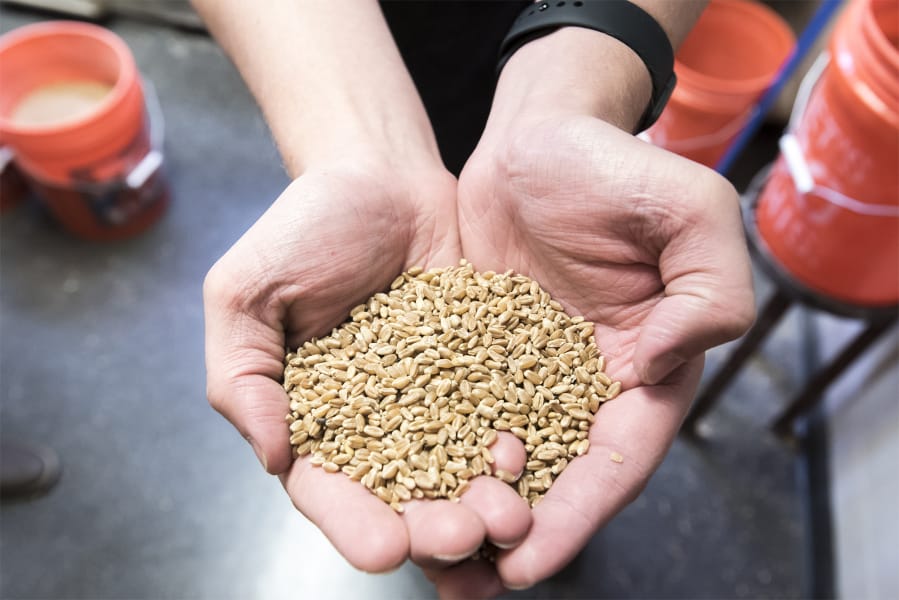Amid emergency repairs of the Bonneville Lock that has halted commerce in the Columbia River for weeks, one of the biggest companies impacted, United Grain Corp., has resorted to moving grain through the Columbia River Gorge by train.
United Grain, which operates the largest grain elevator on the West Coast, ordinarily keeps its silos full to the 220,000 metric-ton capacity. But since lock repairs halted grain delivery by barge, the elevator is down to a 1,000 metric-ton supply of soft white wheat, according to the company.
That’s a fraction of the 66,000 metric tons needed to fill the African Gannett, a cargo ship idled at the Port of Vancouver waiting for grain. Three more cargo ships are headed up the Columbia River and should arrive by Sept. 30, which is the day that the U.S. Army Corps of Engineers hopes to have the issue fixed.
Hiring trucks to carry grain past the lock is too expensive to justify the cost, so United Grain been filling railcars with a fraction of its grain to get it to Vancouver, the company said.
BNSF spokesman Gus Melonas said there hasn’t been any significant increase in train traffic through the Gorge.
Augusto Bassanini, United Grain’s president and CEO, said the lock shutdown is “a serious issue for our company and our entire trade-dependent region” in a statement to The Columbian on Friday.
“Know that this isn’t just impacting us and our reputation as a reliable supplier, but also other exporters, county elevators and American farmers as the pipeline plugs up,” his statement said.
He wrote he’s grateful for the Corps’ quick response to the shutdown.
The company did not disclose how much it was paying to keep the idled ships at the Port of Vancouver or detail other financial losses it is facing as a result of the lock shutdown.
Repair crews have been working around the clock to fix the lock since damage was discovered to a concrete sill that allows the lock gates to seal.
On Thursday, crews completed drilling 33-inch deep holes into the concrete base of the lock, said Lauren Bennett, spokeswoman for the U.S. Army Corps of Engineers. Workers on Friday placed and epoxied rebar anchors, she said.




